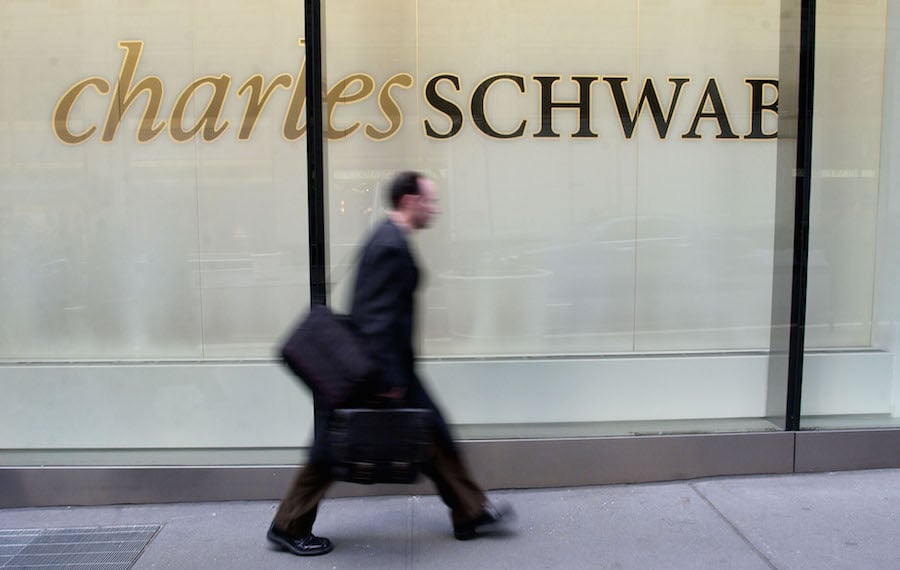The custodian business could get a lot more interesting with the reported
acquisition of TD Ameritrade Holding Corp. by rival Charles Schwab Corp.
The $26 billion deal, which as of midday Thursday had yet to be confirmed by either company, would create a financial services powerhouse with $5 trillion under management and bring together anywhere from 50% to 70% of the financial advice industry's custody business.
Financial advisers and industry experts saw both pros and cons to the deal, recognizing both the power of scale and the downside of less competition.
"For advisers this will be interesting, because the combined firm will lay claim to dominating the market relationship, in numbers at least, from the smallest advisers to the industry's largest," said Michael Papedis, managing partner at Fusion Financial Partners.
"The merger will force the remaining custodians to further hone their services and points of differentiation to stay competitive, which is ultimately a good thing for the industry, advisers and end clients, no matter what RIA custodian is chosen," he added.
"The combined company should have better economies of scale and that should trickle down to better pricing and better resources for the RIA," said David Lyon, CEO of adviser technology firm Oranj.
"If Schwab and TD Ameritrade are looking to the future, they'll focus on building a full-stack tech solution with great practice management support to deliver value to their RIA clients," said Anders Jones, chief executive of Facet Wealth.
But while the consolidation and scale look like a bonus to some, others see reduced competition and the negatives that could come with that.
Andrew Casteel, chief investment officer at Acorn Financial Services, credits the competition among custodians for much of the innovation over the past decade.
"Our concern is the consolidation of these key players could potentially slow innovation which would be a negative for the end consumer," he said. "Also, one of TD Ameritrade's talking points historically has been 'we don't compete against the advisers at RIAs.' This was considered a differentiating factor, versus Schwab and other custodians. This will most likely change after this deal."
While the deal, which could go down as the most significant transaction of the year, caught much of the industry off guard, some observers said it makes perfect sense in the wake of the fee wars triggered last month when
Schwab cut many of its trading commissions to zero.
"If your trading costs go to zero, you'll have to rely on scale in your business," said Eric Clarke, CEO of Orion Advisor Services.
"It will be important for Schwab and TD to maintain a high level of service during this transition," he added. "Both companies have earned a high degree of trust and loyalty with the advisers they serve, so I think they'll receive the consolidation favorably."
Representatives from Schwab and TD did not respond to requests for comment.
Even without an official announcement, the
financial markets were taking notice by driving TD shares up nearly 25% in premarket trading and then up 20% in midday trading. Schwab shares were up 11% in premarket trading, then up more than 7% by midday Thursday.
The stock market was embracing the potential scale that the combined enterprise would create. TD Ameritrade has $1.3 trillion under management, while Schwab has has $3.85 trillion in AUM. Schwab CEO Walt Bettinger is expected to be placed in charge of the company post acquisition.
[Recommended video: Michael Kitces on the evolution of custodians and fees]
According to the most recent financial statements from the two publicly-traded companies, Schwab had fiscal 2019 annual revenues of $10.8 billion and TD had annual revenues of $5.87 billion. The combined market value of the companies is roughly $80 billion.







